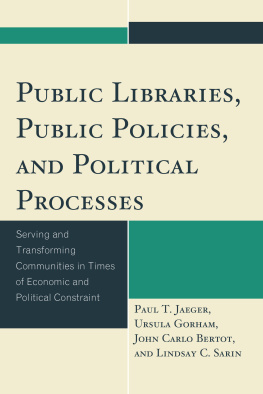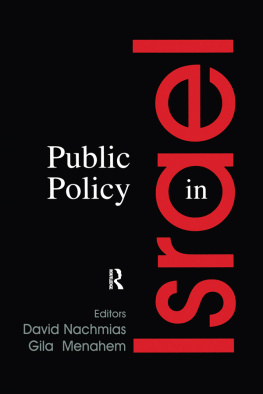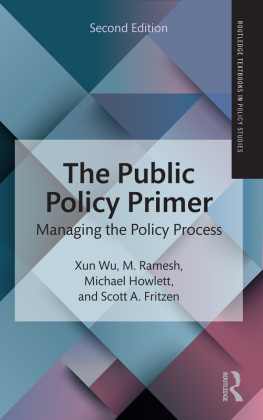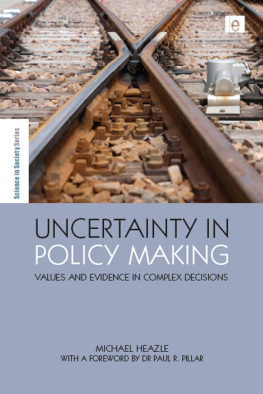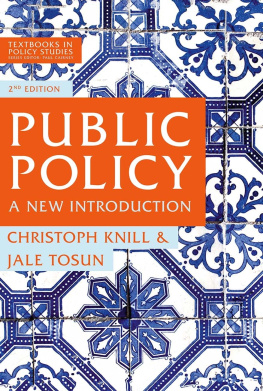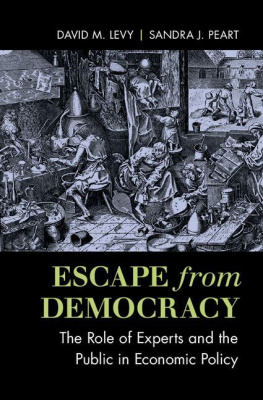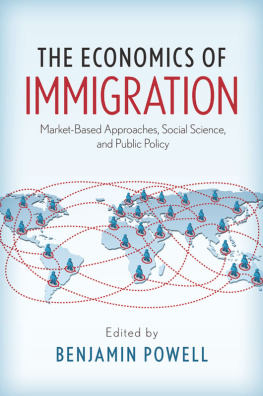
Science, Risk, and Policy
For decades, experts and the public have been at odds over the nature and magnitude of risks and how they should be mitigated through policy. Experts argue that the fears of the public are irrational, and that public policy should be based on sound science. The public, on the other hand, is skeptical of experts, and believes policy should represent their interests. How do policy analysts make sense of these competing views?
Science, Risk, and Policy answers this question by examining how people evaluate evidence, how science is conducted, and how a multidisciplinary framework for risk can inform policy by bridging the gap between experts and the public. This framework is then applied to four case studies: pesticides, genetically engineered foods, climate change, and nuclear power. By tracing the history of the science, policies, and regulations, and evaluating arguments made about these risks, Andrew J. Knight provides a guide to understand how experts and the public view risks.
Andrew J. Knight works for the Province of Nova Scotia in program evaluation.
Routledge Studies in Science, Technology and Society
For a full list of titles in this series, please visit www.routledge.com
24Commodified Bodies
Organ Transplantation and the Organ Trade
Oliver Decker
25Information Communication Technology and Social Transformation
A Social and Historical Perspective
Hugh F. Cline
26Visualization in the Age of Computerization
Edited by Annamaria Carusi, Aud Sissel Hoel, Timothy Webmoor and Steve Woolgar
27The Leisure Commons
A Spatial History of Web 2.0
Payal Arora
28Transparency and Surveillance as Sociotechnical Accountability
A House of Mirrors
Edited by Deborah G. Johnson and Priscilla M. Regan
29The Fukushima Effect:
A New Geopolitical Terrain
Edited by Richard Hindmarsh and Rebecca Priestley
30Digitizing Identities
Doing Identity in a Networked World
Edited by Irma van der Ploeg and Jason Pridmore
31The Globalization of American Infrastructure
The Shipping Container and Freight Transportation
Matthew Heins
32Science, Risk, and Policy
Andrew J. Knight
Science, Risk, and Policy
Andrew J. Knight
First published 2016
by Routledge
711 Third Avenue, New York, NY 10017
and by Routledge
2 Park Square, Milton Park, Abingdon, Oxon OX14 4RN
Routledge is an imprint of the Taylor & Francis Group, an informa business
2016 Taylor & Francis
The right of Andrew J. Knight to be identified as author of this work has been asserted in accordance with sections 77 and 78 of the Copyright, Designs and Patents Act 1988.
All rights reserved. No part of this book may be reprinted or reproduced or utilised in any form or by any electronic, mechanical, or other means, now known or hereafter invented, including photocopying and recording, or in any information storage or retrieval system, without permission in writing from the publishers.
Trademark notice: Product or corporate names may be trademarks or registered trademarks, and are used only for identification and explanation without intent to infringe.
Library of Congress Cataloging-in-Publication Data
CIP data has been applied for.
ISBN: 978-1-138-18926-3 (hbk)
ISBN: 978-1-315-64170-6 (ebk)
Typeset in Sabon
by Apex CoVantage, LLC
Contents
I would like to acknowledge Dr. Rex Warland, Professor Emeritus at Pennsylvania State University, for being a mentor and introducing me to the field of risk perception. I would also like to acknowledge my colleagues in academia and government, who have inspired me to write this book from our interactions over the years. Two fellow graduate students in particular indirectly contributed to this book by aiding in my development as a writer: Robert (Bob) Andersen, currently the Dean of Social Science at the University of Western Ontario, and Tim Slack, currently an Associate Professor of Sociology at Louisiana State University.
When I hear the term layperson, my mind returns to my childhood, when my father was an occasional lay preacher. In his spare time, he gave sermons on Sunday mornings at churches, filled in as an interim pastor, held services at correctional facilities, taught Sunday school, served as a deacon, and led devotions. He was a lay preacher because he was not an ordained minister; he did not have any formal schooling to be a preacher, nor did he have the appropriate credentials to be a minister. While the lack of credentials prevented him from becoming a certified member of the pastor membership sanctioned by the governing body, his strong faith in God, an inquiring mind to the study of scripture, exceptional people skills, and a gift for speaking enabled him to become a highly respected Sunday school teacher, biblical scholar, church elder, and speaker.
Having been raised in such an environment may very well have been responsible for my desire for learning, achieving a doctoral degree, and becoming a professor. Unlike my father, however, years of formal schooling and training provided me with the credentials to become a professional with an expertise on various topics. Without the credentials of a PhD and the requisite training, I would be a person with a passion for innovation and science, but would remain a layperson outside of the expert scientific society.
It may be argued that there are practicing pastors without formal training and some scientists working at universities who do not have PhDs. In reality, this argument is true. Technically, these laypeople have been accepted as members of a given profession or specialized field. There are always exceptions to the general rules, and exceptional individuals may be able create their own path. As a sociologist, my training warned about making generalized statements, but at the same time, taught me to be cognizant of trends and overarching patterns. While exceptions might exist, it still valid and necessary to describe the overarching pattern.
The scientific community historically, and often still, views laypeople as uniformed and unqualified to discuss scientific matters. The predominant view is that laypeople should leave science to the experts. Whereas some scientists might prefer the realm of science to be their domain exclusively, many laypeople disagree with this view and have launched various critiques against science and scientists. Debates between laypeople and scientists and their conceptions and misconceptions about each other became a topic of my own research agenda and in part led to the writing of this book.
As an academic, a government employee, and a layperson, I have been privy to many discussions on the roles of science in research and public policy. Some people have advocated that public policy should be based solely on scientific evidence. Politicians, however, have sometimes ignored or discarded science for the sake of politics. Some either deny or misrepresent science for ideological reasons. Others are skeptical of science and its so-called experts. Lay charlatans sometimes exploit the publics ignorance about science to profit from it. Many of these discussions have led me to believe that there are two sides to the coin. On one side, the scientific community is correct when stating that non-practitioners often do not understand science. On the other side, scientists far too often ignore or dismiss valid points made by the public or laypeople.


